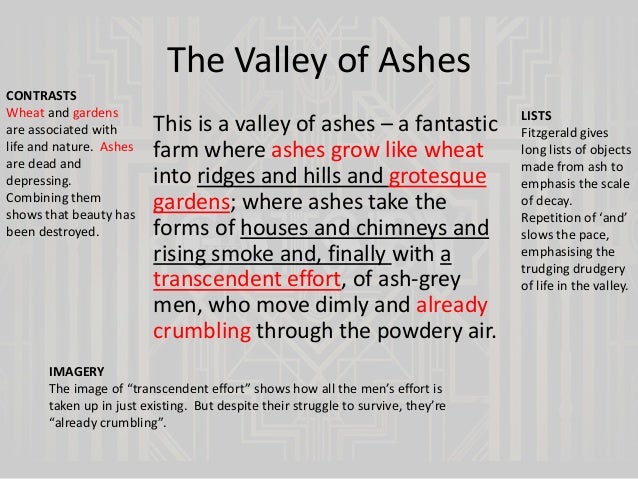The Great Gatsby
❤️ Click here: The great gatsby chapter 3 quotes and analysis
Instead, Gatsby does indeed have real books. In this atmosphere of opulence and revelry, Nick and Jordan, curious about their host, set out to find Gatsby. Chapter 3, The Great Gatsby Summary Nick describes the elaborate, extensive preparations made for the parties held seemingly every weekend at Gatsby's house - crates of fruit to be squeezed into juice, full orchestras, tents, caterers, and large amounts of alcohol. It faced—or seemed to face—the whole external world for an instant, and then concentrated on you with an irresistible prejudice in your favor.
He notices fights breaking out between other couples. Nick and Jordan chat with other party people. Gatsby displays the foolishness of wanting to repeat the past.

SAT / ACT Prep Online Guides and Tips - The orchestra plays a work by Tostoff called The Jazz History of the World; though it had had a fantastic reception at Carnegie Hall, the piece is the antithesis of classical respectability.

Nick says that as a result of following this advice, he's become a tolerant and forgiving person who resists making quick judgments of others. Nick intends to become a bond salesman, a line of work he says that almost everyone he knew was entering. Nick hopes to find a taste of the excitement and sense of possibility that was sweeping the nation in the early 1920s. He says moving to New York offered him and everyone else the chance to discover or reinvent themselves. Nick rents a house in West Egg, a Long Island suburb located directly across a bay from East Egg. Nick observes that the two communities differed greatly in every way but shape and size. Gatsby's mansion is a gigantic reproduction of a French hotel, covered in ivy and surrounded by forty acres of lush lawns and gardens. The main story begins when Nick, who, though he lives in West Egg has East Egg connections, drives over to East Egg to have dinner at the Buchanans. Daisy Buchanan is Nick's cousin, and Nick vaguely knew her husband Tom because Tom also attended Yale. When Nick arrives, Tom is dressed in riding clothes. Tom speaks to Nick politely but condescendingly. Nick remembers that plenty of people hated Tom at Yale, and notes that both Tom's arrogance and imposing stature have changed little since those days. Yet Tom's stately riding clothes can't hide his hulking body, just as his politeness can't hide that he's a jerk. Soon, Tom launches into a diatribe about the downfall of civilization as described in a book entitled The Rise of the Colored Empires. The book explains that the Nordic race, with which Tom identifies himself, created civilization and is now threatened by the rise of other, inferior races. Tom urges everyone to read the book. Daisy tries to make light of his suggestion. Upon returning from dinner, Nick sees Jay Gatsby standing on his lawn and gazing out across Long Island sound. Nick considers calling out to Gatsby, but stops himself when he sees Gatsby extend his arms out toward the far side of the water. Nick looks across the water and sees only a tiny green light blinking at the end of a dock. Retrieved October 25, 2018. Retrieved October 25, 2018.
The Great Gatsby Chapter 3 Audio Version ENG3U FEB17
In his blue gardens men and girls came and went like moths among the whisperings and he champagne and the stars. Analysis: Meet Nick Carraway, the novel's narrator, who utters his first civil statement. It happens to be a rather confidential sort of thing. Nick and Jordan decide to find their mysterious host, and wander into Gatsby's library. Each weekend, guests are ferried back and forth to Manhattan by Rolls-Royce, crates of oranges and lemons are juiced, an army of caterers caballeros up tents and lighting, food is piled high, the bar is overwhelmingly stocked, and there is a huge band playing. However, to me, one of the important quotes that it is important to focus on is the description of the revelers at Gatsby's parties and how they are met. His gatherings were lavishly catered serving two complete dinnersboasting not just a small combo of musicians, but a whole orchestra. The green light, in a broader sense, symbolizes the American Dream and the pursuit of wealth--something, despite his immense riches--Gatsby never achieves. However, to me, one of the servile quotes that it is important to focus on is the description of the revelers at Gatsby's parties and how they are presented.



